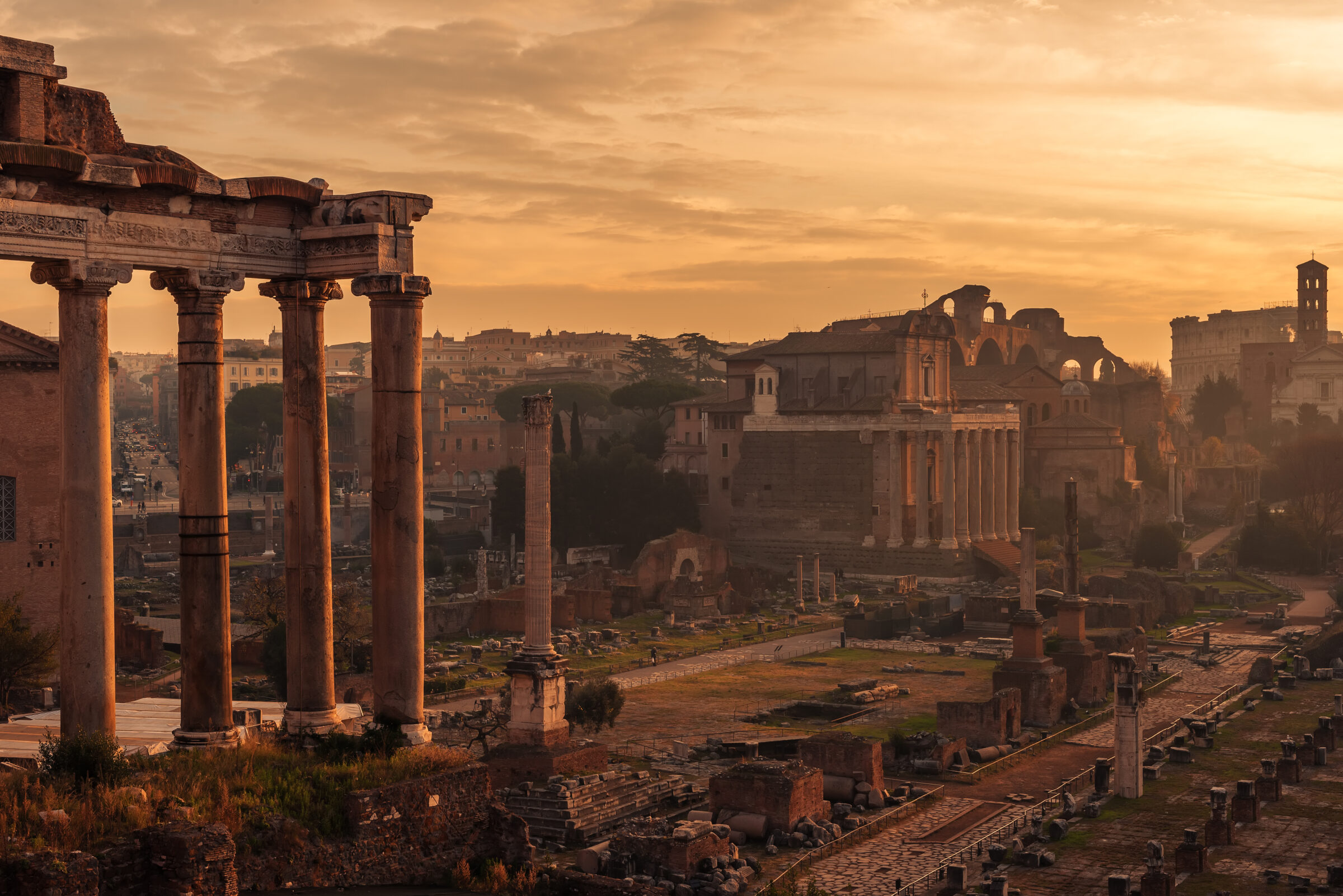Wealth & Poverty Review Homelessness in Ancient Rome
Crossposted at Fix HomelessnessHomelessness is nothing new. Two thousand years ago Roman historian Livy described a tugurium, a made-of-scraps lean-to like the ones I’ve seen homeless people construct on trash heaps in Guatemala City and Phnom Penh. British historian Peter Brunt’s summary is blunt: “Most of the inhabitants of Rome lived in appalling slums.’”
Many of the homeless of Rome, the richest city of a massive empire, slept under the stairs of insulae, apartment blocks that could rise to 70 feet, the maximum height allowed by an Augustus decree. Some slept between the columns of porticos or along the Tiber. Others slept in tombs, which could become homes for the living as well as the dead: They could double up as bathrooms and triple up as brothels.
Massive homelessness is also nothing new. Ancient Rome at its height may have had one million inhabitants, 300,000 of whom were desperately poor. Art historian Alexander G. McKay wrote Houses, Villas, and Palaces in the Roman World, but the homeless had none of these: At best, in McKay’s memorable phrase, they were able to spend the night in “disposable cubicles for dispensable people.”
Many among the rich had little sympathy for the homeless, especially those who begged. Cicero described them as dordem urbis et faecem, “scum of the city” who deserved to be “drained off to the colonies.” But homeless men were needed as day laborers to construct roads and big buildings, and to fill out the crowds of leading politicians whose egos demanded packed-in plebians. Some, who helped to handle wild animals for gladiator games, displayed their scars at bars near Rome’s Colosseum.
Beggars were often children, sometimes put out for that purpose by parents, sometimes beaten by parents or sexually abused. Some homeless people, then and now, were mentally ill. Rome 2,000 years ago had no facilities for the disturbed, and no remedy besides offering sacrifices at temples to Jupiter, Juno, or gods from the Middle East like Isis and Cybele.
Whatever the reasons, the homeless were ubiquitous and many among the affluent saw them as iniquitous. When the desperately poor revolted, punishment was severe: Romans nailed to crosses six thousand of the Spartacus rebels in 71 B.C. and left them along a major highway, the Appian Way, to die of pain, starvation, and thirst. Officials left the corpses hanging there for the pleasure of buzzards and the education of slaves, whose masters could take them on field trips to see what would happen to rebels.
But it’s not all bad news. French archeologist/historian Paul Veyne, now 92, emphasizes the importance in ancient Rome of “euergetism,” voluntary giving by wealthy, influential aristocrats. He argues that most of the Roman rich did not give out of guilt, or to avoid taxation, or to exploit the proletariat in a Marxist sense. Instead, they gave out of a sense of their own privilege and a desire to bulwark their social status and prestige, much like some of today’s newly-rich, high-tech elite.
Nineteenth century German theologian and historian Gerhard Uhlhorn had a more critical view. He wrote that in the early A.D. years “the Roman populace became more and more a work-hating, pleasure-seeking crowd, which cheered every new leader in the hopes of new largesse.” As money without work became morally accepted, people sought handouts: “The Roman of that day would much rather busy himself as a beggar and sycophant in the hall of some great man, than stick to any ordinary and regular work.”
Uhlhorn saw Roman charity as self-interested: “Of such a compassion as is self-sacrificing for the sake of others, we hear nothing. Even in the making of gifts and presents, it is not the individual, but the State, the town, the citizenship that is regarded. There is plenty of liberality, but no compassion; plenty of good deeds, but none of the works of charity. [Furthering] the interests of the State furthers one’s own interests… without it, one is nowhere. Here again we find selfishness at the bottom of all.” Uhlhorn grounded such selfishness in a lack of belief that humans have eternal souls: A rich person did not trouble himself about the poor and needy, “whose existence or non-existence is at bottom a matter of no importance.” What changed in Rome? You might be able to guess, but please tune in next Friday to learn more.

